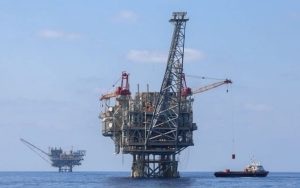by Toi Staff, November 24, 2018 in TheTimes.of.Israel
HE LONGEST, DEEPEST UNDERWATER GAS NETWORK IN THE WORLD
Greece, Italy, and Cyprus have reached an agreement with Israel to lay a pipeline connecting the Jewish state’s gas reserves to the three countries, in a major project estimated at costing over $7 billion that will supply gas from the eastern Mediterranean to Europe, as the continent seeks to diversify its energy supply.
According to Hadashot TV, the European Union agreed to invest $100 million in a feasibility study for the project before the agreement was reached over the laying of the longest and deepest underwater gas pipeline in the world.
…

by Stephanie Roker, November 22, 2018 in WorldCoal
Indonesia’s consumption of domestic coal for power generation will almost double from 84 million t in 2018 to 157 million t by 2027. This increases power generation’s share of domestic consumption from 18.5% to 33.6%, which is likely to displace export tonnage.
Another factor contributing to the higher coal consumption is that Indonesia’s new power plants are designed to consume lower energy coal. This means more coal will be required per unit of electricity generated.
This increase in domestic consumption combined with potential government efforts to conserve coal reserves represents a downside risk for Indonesian exports.
Indonesia’s electrification programme to drive domestic coal demand
…
by Bob Tisdale, November 24, 2018 in WUWT
Chapter 6 – Temperature Changes in the United States of the U.S. Global Change Research Program’s recently published Climate Science Special Report (2017) clearly shows and discusses, under the heading of “6.1.2 Temperature Extremes”, how temperature extremes for the contiguous United States have become more moderate over the last 118 years, with the coldest daily temperatures warming and the warmest daily temperatures cooling. In other words, temperature-extreme-related climate in the United States has improved.
…
by University of Utah, November23, 2018 in ScienceDaily
-
New research disputes a long-held view that our earliest tool-bearing ancestors contributed to the demise of large mammals in Africa over the last several million years. Instead, the researchers argue that long-term environmental change drove the extinctions, mainly in the form of grassland expansion likely caused by falling atmospheric carbon dioxide (CO2) levels.
-
The study is published today in the journal Science.
“Despite decades of literature asserting that early hominins impacted ancient African faunas, there have been few attempts to actually test this scenario or to explore alternatives,” Faith says. “We think our study is a major step towards understanding the depth of anthropogenic impacts on large mammal communities, and provides a convincing counter-argument to these long-held views about our early ancestors.”
To test for ancient hominin impacts, the researchers compiled a seven-million-year record of herbivore extinctions in eastern Africa, focusing on the very largest species, the so-called ‘megaherbivores’ (species over 2,000 lbs.) Though only five megaherbivores exist in Africa today, there was a much greater diversity in the past. For example, three-million-year-old ‘Lucy’ (Australopithecus afarensis) shared her woodland landscape with three giraffes, two rhinos, a hippo, and four elephant-like species at Hadar, Ethiopia.
…
See also here
La géologie, une science plus que passionnante … et diverse

